Drug and Alcohol Rehab in Cleveland
It’s natural to have many questions about what rehab is, how it works, and how to access it.
At Rehab Recovery, we offer several different treatment options with varying levels of care depending on your situation and needs to help you to manage your addiction.
By providing this information, we hope to take away some of the anxiety you may be feeling around accessing structured treatment for addiction by giving you an insight into what drug and alcohol rehab in Cleveland may actually look like.
This page will start by identifying some of the options available to you.
It will then go into more detail about what happens in rehab and what you may expect from professional clinical treatment for addiction.
To discuss your options for drug and alcohol rehab in Cleveland, please contact our dedicated team today on 0800 088 66 86
Addiction in Cleveland: Some Statistics

1. Alcohol Dependency in the Cleveland Area
A report estimated that between 2015 and 2016, there were around 5,284 adults who are dependent on alcohol living in North Yorkshire.
This works out at around 1.7% of the North Yorkshire population. The study shows that this number tends to be increasing over time.
2. Drug Use and Dependency in the Cleveland Area
There are an estimated 2,007 adults in North Yorkshire considered to be users of opiates and crack (also known as OCUs).
This suggests that there is a considerable need for drug and alcohol rehab in Cleveland and the surrounding North Yorkshire areas.
If you’re in need of the help of a drug and alcohol rehab in Cleveland, give our team a call on 0800 088 66 86
How Do I Know I Need Drug and Alcohol Rehab?

There is a difference between causal drinking, occasional drug use, and addiction.
Addiction is considered by clinical authorities to be a medical condition.
More specifically, it is described as a chronic disorder.
This means that addiction is something that will affect your life in many different ways.
If your drinking or drug use is starting to become more than a leisure activity and is beginning to impact any of the following areas, there is a likelihood that you are dealing with addiction:
- Emotional and mental health
- Physical health
- Relationships and intimacy
- Friendships and social life
- Work or education
- Home management
- Finances
2. How are addictions treated?
Because addiction is a condition, it means it can be treated.
Treatment for addiction can come in many different forms, and this page will give you more detail on the many different routes available at drug and alcohol rehab in Cleveland.
Generally, though, rehab treatment can take the form of:
- Medication management
- Behavioural and talking therapies
- Holistic therapy
- Support groups
- Family intervention
That initial step can be the hardest, however, it is the best way towards overcoming the disease of addiction and building a healthier, happier life.
Not sure whether you need the help of a drug and alcohol rehab in Cleveland? Talk it over with our experts today on 0800 088 66 86
Deciding What Kind of Support is For You

Deciding what kind of drug and alcohol rehab in Cleveland is for you is a key stage of your recovery journey.
Some of the main questions you may want to consider include:
- Should I go private or through the NHS?
- Should be an Inpatient or an Outpatient?
- Should I stay local or not?
- Can I see my family while I’m in rehab?
- Can I still work?
- What if I have any additional needs?
Here we’ll help you get a sense of the different options available, so you can start to weigh up what approach to recovery may work best for you.
There are benefits to all types of support.
This is why all of these kinds of treatments are available at drug and alcohol rehab in Cleveland, so you can begin to build a personalised treatment plan that suits you.
Make sure that you get the right help from a drug and alcohol rehab in Cleveland by giving our team a call on 0800 088 66 86
Private or NHS?

Private treatment is another way of saying support that is accessed through a specialised provider of addiction support.
NHS addiction treatment is offered through the National Health Service.
Pros of Private Support:
- Waiting lists are often shorter
- Often more choice around kinds of treatment (earlier access to inpatient care, etc.)
- You can self-refer by contacting a provider whenever you are ready
Pros of NHS Support:
- Lower cost involved
- Working with a GP or other care provider closely
- Will receive at least one course of treatment (medication, cognitive behavioural therapy, etc).
Naturally, this costs more money and means that some people pay up to £12,000 for treatment.
There are several charity and NHS-run recovery services operating in and near Cleveland, including:
1. The Ridings
Address: The Ridings, CAMHS, 3-6 Dalaro Court, Kirkleatham Business Park, Redcar, TS10 5RT
Telephone: 0300 013 2000
Website: https://www.tewv.nhs.uk/locations/ridings/
2. We Are With You
Address: 161 High St, Redcar, TS10 3AN
Telephone: 0300 303 3781
Website: https://www.wearewithyou.org.uk/
3. Next Steps Ryedale
Address: 7 Church Street Norton, Malton, North Yorkshire
Telephone: 01653 690 854
Website: https://www.nextstepsryedale.co.uk/
For help choosing between private or public drug and alcohol rehab in Cleveland, talk to us today on 0800 088 66 86
Inpatient or Outpatient?
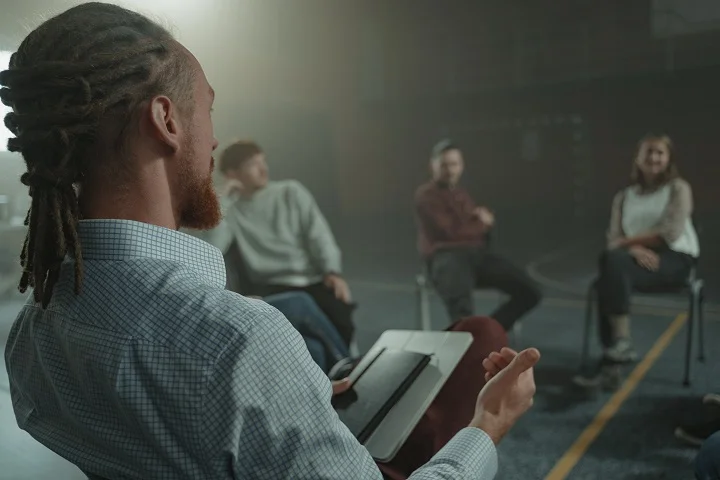
Inpatient rehab is a residential type of care.
This means that to access inpatient rehab, you will need to temporarily stay in the centre. This means taking some of your belongings and living within the facility for a short period of time.
Outpatient rehab is addiction treatment that does not require you to stay in a facility.
Usually, outpatient care is accessed on an appointment-to-appointment basis.
There is a conception that residential treatment is always the best for everyone. For some people though, an intensive outpatient programme can offer very effective treatment.
Pros of Inpatient Rehab:
- Round-the-clock care and support from specialist clinicians and support staff during your stay
- Fewer distractions (which can mean less temptation to relapse, and also an increased ability to concentrate on your own wellbeing)
- The ability to build connections and relationships with people in similar situations, which can foster feelings of community and support
Pros of Outpatient Rehab:
- No need to change usual living or sleeping arrangements
- You may be able to engage more thoroughly with your support network (friends and family) during less structured treatment
- It may be easier to continue working, and therefore retain more normality if this is helpful in your situation
Not sure what kind of treatment you need from a drug and alcohol rehab in Cleveland? Give our team a call today on 0800 088 66 86
Local or Not?

Another important decision to make before starting addiction treatment is choosing a facility that is in a convenient location for you.
It may be appealing to stay local and to attend a drug and alcohol rehab in Cleveland.
For some people though, the thought of going a little further afield for treatment can also be an attractive idea.
Pros of Staying Local
- Limited travel costs
- You can stay closer to your support network
Pros of Travelling for Rehab
- The ability to concentrate fully on you and your recovery
- It can often provide a break from your usual routine and home life
Can I See My Family?

Every family is very different.
Some people may find that in their current situation, they would benefit from having some time away from their family members in order to concentrate on beginning their recovery process.
Others may feel that family involvement is key, and may even choose to use family therapy in addition to individual therapy as part of their treatment.
In most treatment contexts, you will have the ability to choose how present and involved your family are during your support.
This is a personal decision, and the staff at Rehab Recovery understand that this may be a difficult topic for many people, for many different reasons.
Access a drug and alcohol rehab in Cleveland that suits all of your needs by calling us today on 0800 088 66 86
What About My Job?

Staying in Work
Some people may continue to work whilst in drug and alcohol rehab.
Your ability to do this may be guided somewhat by the kind of support you access.
Some more intensive treatments, for example, may make it more difficult for you to continue to work alongside staying in residential rehab.
Depending on your job, it may also be more difficult to work if you decide to travel to rehab.
Taking Time Off
Whilst some people may find that it benefits them to stay at work to keep a sense of normality, for others, this may feel very difficult to manage.
You may be able to speak with your employer about your situation to establish if there is a way to take a break or leave.
If you feel uncomfortable doing this, you may be able to be signed off work for a period of time by a medical professional.
Regardless of your situation, under UK employment law, your employer should listen to your situation and be as sensitive to your needs as possible, always prioritising the health and safety of you and the team around you.
Access a first-rate drug and alcohol rehab in Cleveland by calling us on 0800 088 66 86
Additional Needs?
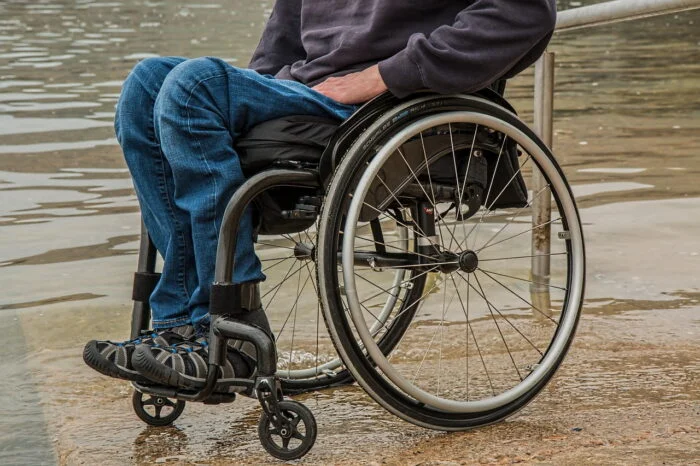
Everyone has different support needs, and sometimes some people may have more than others.
Treatment plans are Rehab Recovery are designed around the belief that every person deserves to have their needs met.
What this means for you, is that during your time at drug and alcohol rehab in Cleveland, your support will be tailored to consider any concerns around additional conditions and support needs you may have.
Dual Diagnosis
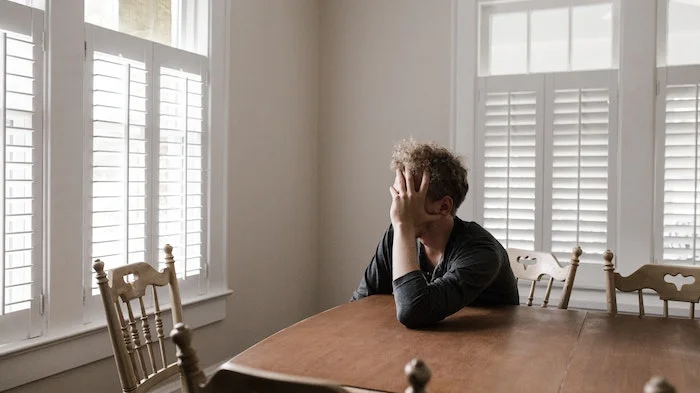
What is dual diagnosis?
A dual diagnosis (or a co-occurring disorder) is when you have multiple diagnosable conditions at the same time.
This is a term that is particularly used to talk about mental health conditions and psychiatric needs.
What are common dual diagnoses?
Any individual patient with one or more mental health conditions are classed as having a dual diagnosis; however, there are some conditions that are more commonly experienced by individuals dealing with addiction.
These can include:
- Anxiety
- Bipolar Disorder
- Borderline Personality Disorder
- Depression
- Grief
- Insomnia
- Post-Traumatic Stress Disorder (PTSD)
- Obsessive Compulsive Disorder (OCD)
- Schizophrenia
With dual diagnosis, it can sometimes be difficult to identify which condition or experience is causing particular thoughts or feelings.
During their treatment, therapy can often help people to untangle the feelings of addiction from the feelings associated with their dual diagnoses, helping them to gain greater understanding and therefore greater control of their general health and well-being.
You can get free mental health support from organisations like Mind UK, Young Minds, Rethink Mental Illness, Samaritans and Papyrus.
What does this mean for my treatment?
During the admissions process, you will be asked for some details about your medical history.
This allows us to help identify how best to meet your treatment needs throughout the duration of your recovery process by incorporating mental health support that aligns with your dual diagnosis.
Supporting Specific Groups
Addiction doesn’t discriminate – it is something that can happen to anyone.
Unfortunately, though, there are some groups who may be disproportionally impacted by addiction.
Being disproportionally affected means that there may be a higher number of people within these groups who are dealing with addiction than in another population of people.
Due to social situations and issues of accessibility, there are some groups who may find it difficult to gain equal access to support for substance abuse.
Some examples of different demographics who may find it more difficult to access rehab include:
- Women
- People of colour
- Senior adults
- Teenagers
- Veterans
- Autistic adults
- LGBTQ+ people
At Rehab Recovery, we believe that addiction access should be equal.
We therefore aim to meet the specific support needs of each individual and will discuss your personal situation during your initial assessment.
To learn more about how a drug and alcohol rehab in Cleveland will support your mental health, call our team today on 0800 088 66 86
What Addictions Can Rehab Recovery Offer Support For?
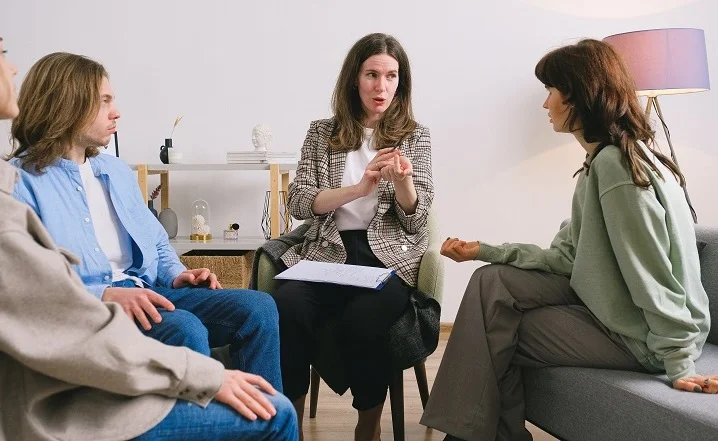
Typically, people think of going to rehab for addictions to things like alcohol, cocaine, or heroin.
But, there are many different addictions that you can receive treatment for at drug and alcohol rehab in Cleveland, including various behavioural addictions.
Some examples include:
- Alcohol addiction
- Acid (LSD) Addiction
- Amphetamine Addiction
- Anabolic Steroid Addiction
- Benzodiazepine Addiction
- Cannabis Addiction
- Cocaine Addiction
- Crack Cocaine Addiction
- Codeine Addiction
- Compulsive Eating
- Compulsive Gambling
- Compulsive Shopping
- Crystal Meth Addiction
- Ecstasy Addiction
- Fentanyl Addiction
- Gaming Addiction
- GHB Addiction
- Heroin Addiction
- Ketamine Addiction
- Methadone Addiction
- Prescription Drug Addiction
- Sex and Love Addiction
- Tramadol Addiction
- Valium Addiction
Whatever addiction you may be suffering from, get the help you need from a drug and alcohol rehab in Cleveland by giving our team a call on 0800 088 66 86
What Happens During Drug and Alcohol Rehab in Cleveland?

After deciding what kind of rehab is right for you, you may have some questions about what rehab will be like.
Depending on your situation, your exact experience will vary.
However, typically drug and alcohol rehab in Cleveland will function in four different stages:
- Initial assessment and admission
- Medical detox
- Psychological support and therapy
- Aftercare and post-rehab support
Stage One: Assessment & Admission
Assessment
Assessment and admission can sound like serious, intimidating processes.
In reality, though, assessment is a conversation between you and one or more clinicians.
This conversation will include a member of clinical staff asking you questions about your situation.
They may ask you some questions based on something called a CAGE assessment.
These questions are asked ‘to determine if substance abuse exists and needs to be addressed.’
There are two sets of questions, one for assessing alcohol addiction and another for assessing drug misuse.
The first set of questions, the CAGE for alcohol addiction, are:
- Do you feel, or have you felt in the past, that you should limit the amount that you drink?
- Do you feel, or have you felt in the past, annoyed or frustrated by comments people make on your drinking habits?
- Do you feel, or have you felt in the past, guilty about your drinking habits?
- Do you, or have you in the past, ever had a drink in the morning to help you get through the day?
The set of questions to assess drug addiction are slightly different. These questions are called the CAGE-AID:
- Do you feel, or have you felt in the past, that you should limit your drug use?
- Do you feel, or have you felt in the past, annoyed or frustrated by comments people make on your drug use?
- Do you feel, or have you felt in the past, guilty about your drug use?
- Do you, or have you in the past, used drugs in the morning to help you get through the day?
Admission is the formal term for starting treatment.
You can be admitted to treatment in both inpatient and outpatient capacities.
Stage Two: Medical Detox
Not every course of rehab requires a medical detox.
A detox is a kind of medication-assisted treatment used at the beginning of rehab for substance use disorders.
However, not all treatments for substance use require a detox stage.
This is because not all addictive substances are physically addictive, meaning that it is physically safe to stop use without the need for bodily regulation.
Stage Three: Psychological Support & Therapy
Once you have safely withdrawn – or, if you are not seeking treatment for a physically addictive substance – you can begin therapy.
Therapy is an overarching term that encompasses lots of different kinds of support that aim to improve wellbeing.
This means that psychological support is not just limited to talking or behavioural therapy, but can also include diverse forms of intervention such as holistic therapies that aim to help treat the body, mind and ‘spirit’ as a whole.
Holistic approaches can also include recreational activities that may support the development of new hobbies and skills to promote positive activity and improve wellbeing.
Some kinds of therapy and psychological treatments we offer include:
- Acceptance and Commitment Therapy
- Brief Interventions
- Co-dependency Treatment
- Cognitive Behavioural Therapy (CBT)
- Dialectical Behavioural Therapy (DBT)
- Family Therapy
- Group Therapy
- Holistic Treatment / Alternative Therapy (Art Therapy, Music Therapy, Acupuncture, Mindfulness, etc).
- Individual Therapy (1-1 Therapy)
- Motivational Enhancement
- Motivational Interviewing
- Psychotherapy
- Twelve-Step Facilitation Treatment (TSF)
- Contingency management
- Self-help groups
Stage Four: Aftercare and Post-rehab Support
The final stage of rehab is aftercare.
Aftercare is the package of support that comes when you leave formal treatment.
At Rehab Recovery, we believe that access to recovery resources shouldn’t end when you leave a drug and alcohol rehab facility.
Aftercare can help by easing the transition from inpatient treatment to returning to the community, or by consolidating skills learnt in therapy sessions during outpatient rehab.
The aftercare offered following your time at drug and alcohol rehab in Cleveland can take a range of forms.
You can speak with your team to discuss the aftercare options available to you.
Most people find that the aftercare package provides them with a clear plan and therefore a stronger sense of confidence to return to everyday life to foster successful recovery.
Some of the most popular support groups associated with aftercare programmes are Alcoholics Anonymous, Narcotics Anonymous, Cocaine Anonymous and SMART Recovery,
To experience any and all of these treatments at a drug and alcohol rehab in Cleveland, give our team a call on 0800 088 66 86
The Duration of Rehab
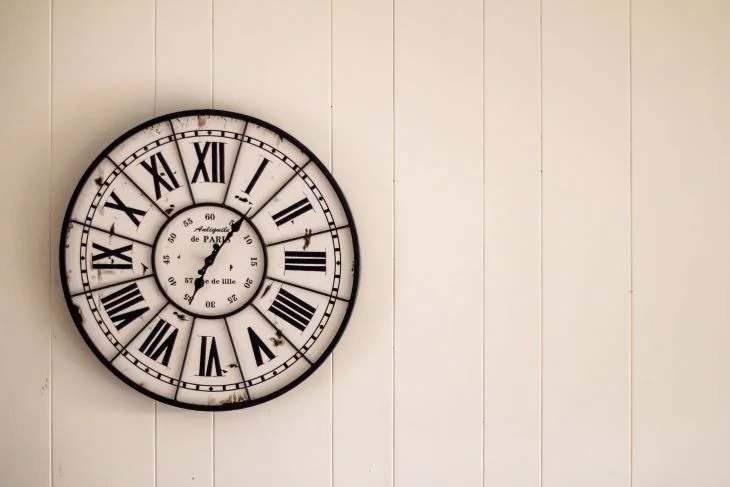
It’s hard to say how long rehab will last.
This is because your time in treatment will be determined by your situation, and most importantly, your progress.
On average, people tend to stay in a residential programme for 28 days.
This can range, however, from a few days, up to several months.
If you would like a clearer estimation of how long your stay at a drug and alcohol rehab in Cleveland is likely to last, call us on 0800 088 66 86
The cost of drug and alcohol rehab in Cleveland

The price of rehab also varies.
An average 28-day course of inpatient rehab will cost around £14,000, at a daily rate of £500 a day.
However, this is not the case for all forms of treatment – there are options at drug and alcohol rehab in Cleveland that range between the £1,000 and £10,000 mark for a week of support.
You can speak with our treatment team to discuss the range of options available, and the different ways you can finance your treatment, including via support from major health insurance providers, or through manageable, tailored direct debit schemes.
Not sure if you can afford the cost of drug and alcohol rehab in Cleveland? Give our team a call today on 0800 088 66 86
Start Recovery Today

Drug and alcohol rehab in Cleveland may be the key to starting your journey to recovery.
Rehab Recovery is run by a team of specialist dedicated clinical team from a range of medical, psychological, and other related fields.
Every rehab in England and Wales that we work with is vetted by the Care Quality Commission.
Get help for addiction across North Yorkshire, including in Middlesborough, York, Harrogate, Scarborough, Redcar, Thornaby-on-the-Tees, Ingleby Barwick, Saltburn, Marske and New Marske, Guisborough, Ripon, Knaresborough, Selby, Skipton, Whitby, Skelton and Brotton, Northallerton, Haxby, Richmond, Yarm-on-Tees, Tadcaster, Loftus and many more.
If you are ready to access support for your addiction and substance abuse you can contact Rehab Recovery at 0800 088 66 86 or use the online form to request a call back from a member of our specialist team about accessing professional treatment at a local rehab centre.
If you are uncomfortable with speaking over the phone, you can use our free chat service at any time of day, to speak with a professional virtually.




